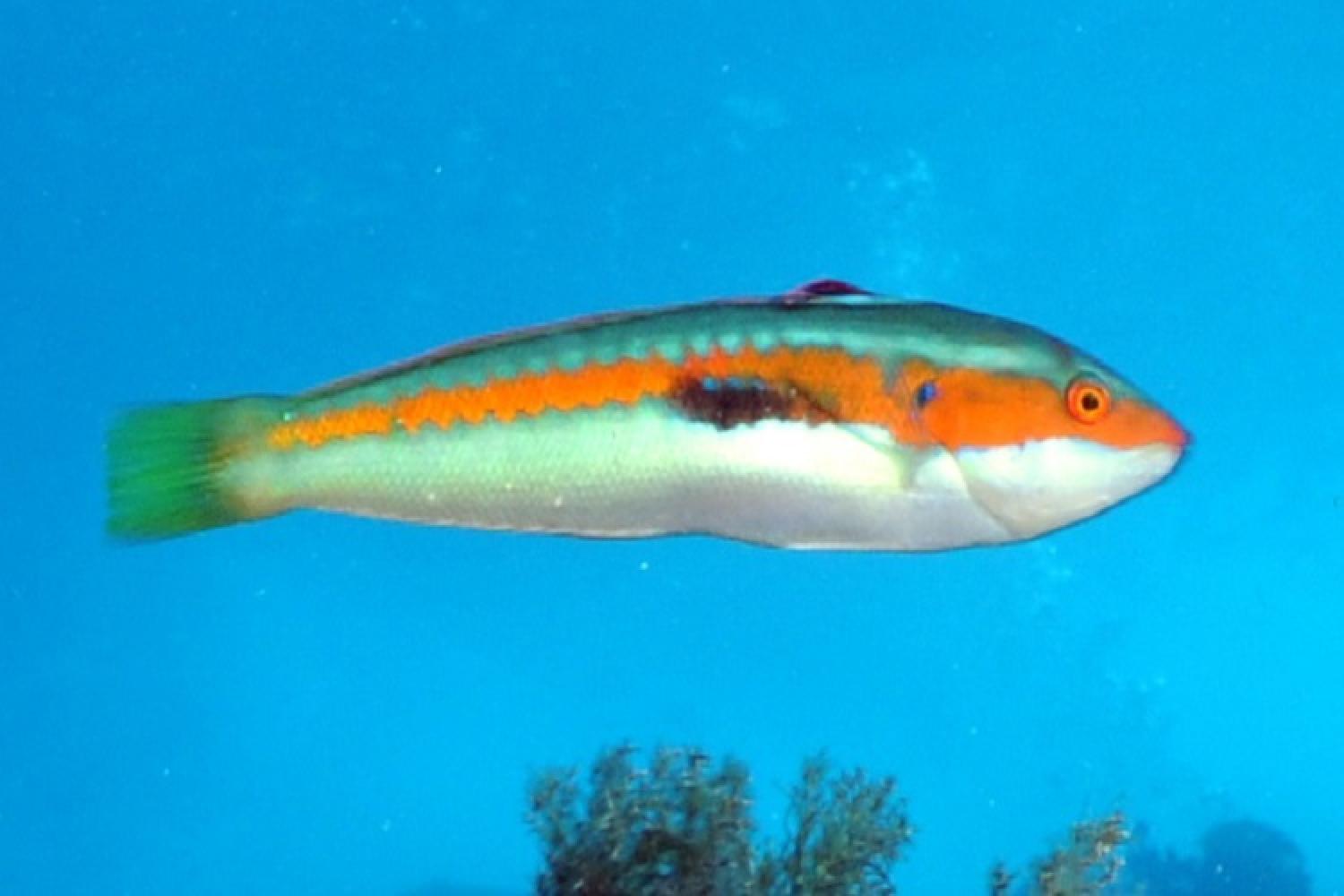Description
The male has a green and blue back and an orangey zigzag stripe on its sides with a large black mark. The female has a brown back with a white stripe on its side. This fish is hermaphrodite, i.e. it changes sex as it grows. All individuals more than 18 centimetres long are males. If it feels threatened or when the temperature of the water is too low, it buries itself in the sand to protect itself.
Scientific names
Coris julis
Natural habitats
- Rocky seabed
- Neptune grass meadows
- Pelagic zone
Did you know?
Juvenile Mediterranean rainbow wrasse feed on the external parasites of other fish that they ‘clean’.
Conservation stakes
Low
Threats
- Overfishing
- Changes to its environment
- Pollution
How can I help to protect it?
- I comply to fishing regulations in force
- I use environment-friendly mooring techniques to limit the impact of anchoring on Neptune grass meadows and coralligenous structures
- In the case of anchoring out at sea, I only anchor in areas where marine habitats are not fragile and raise the anchor vertically
- I report any unusual environment incidents
- I recover waste and dispose of it in suitable bins on land
- I share this best practice with other seafarers and raise their awareness.

